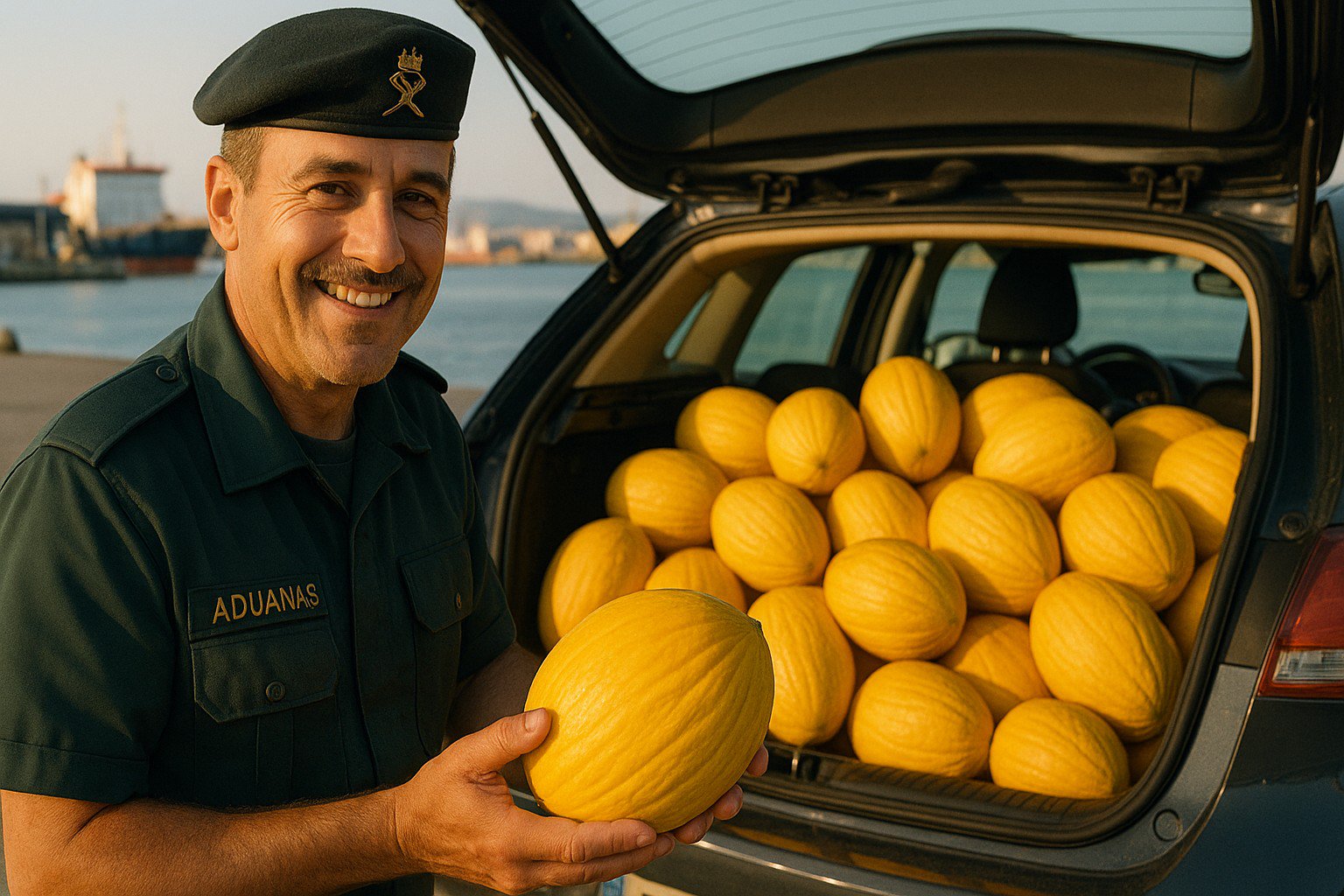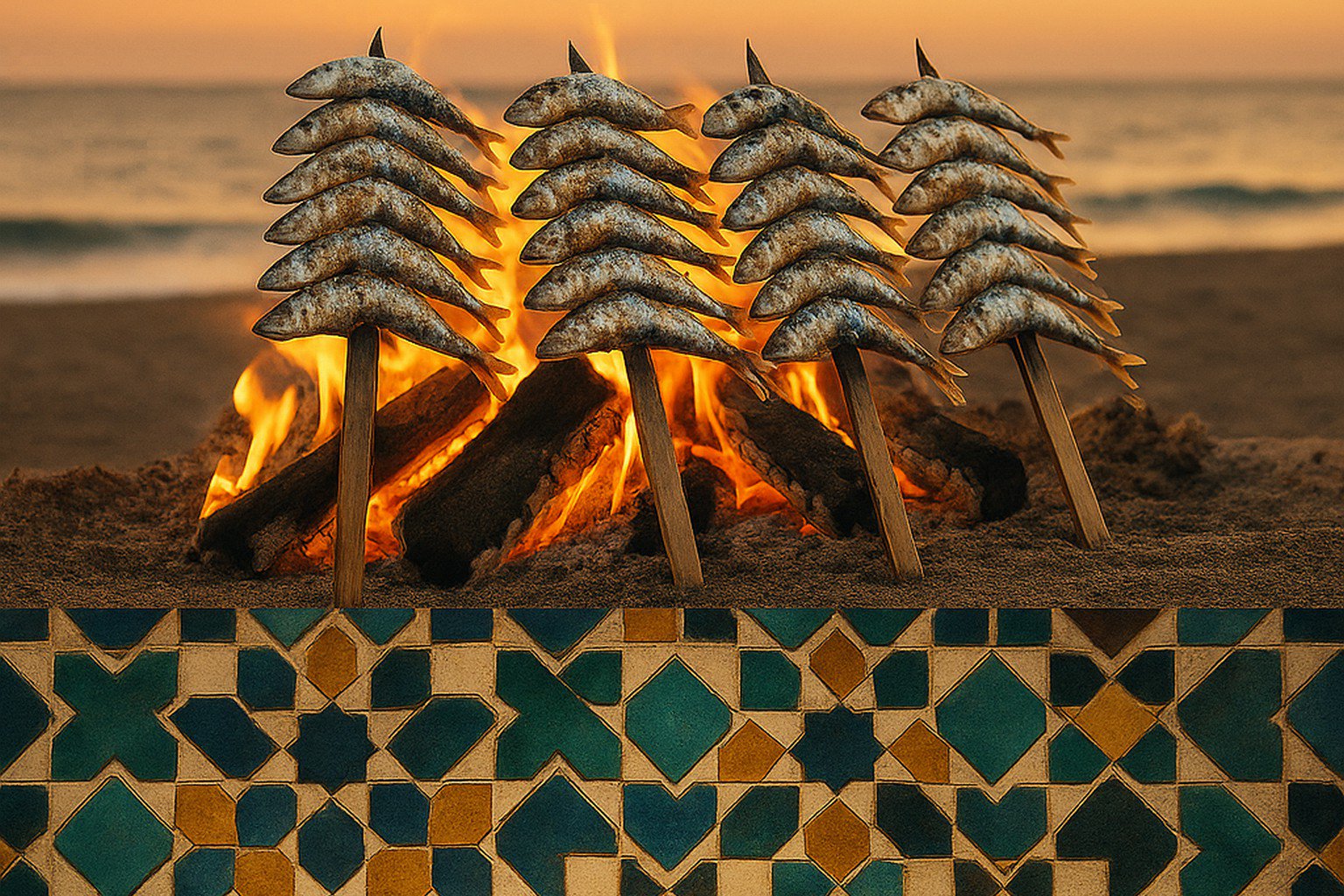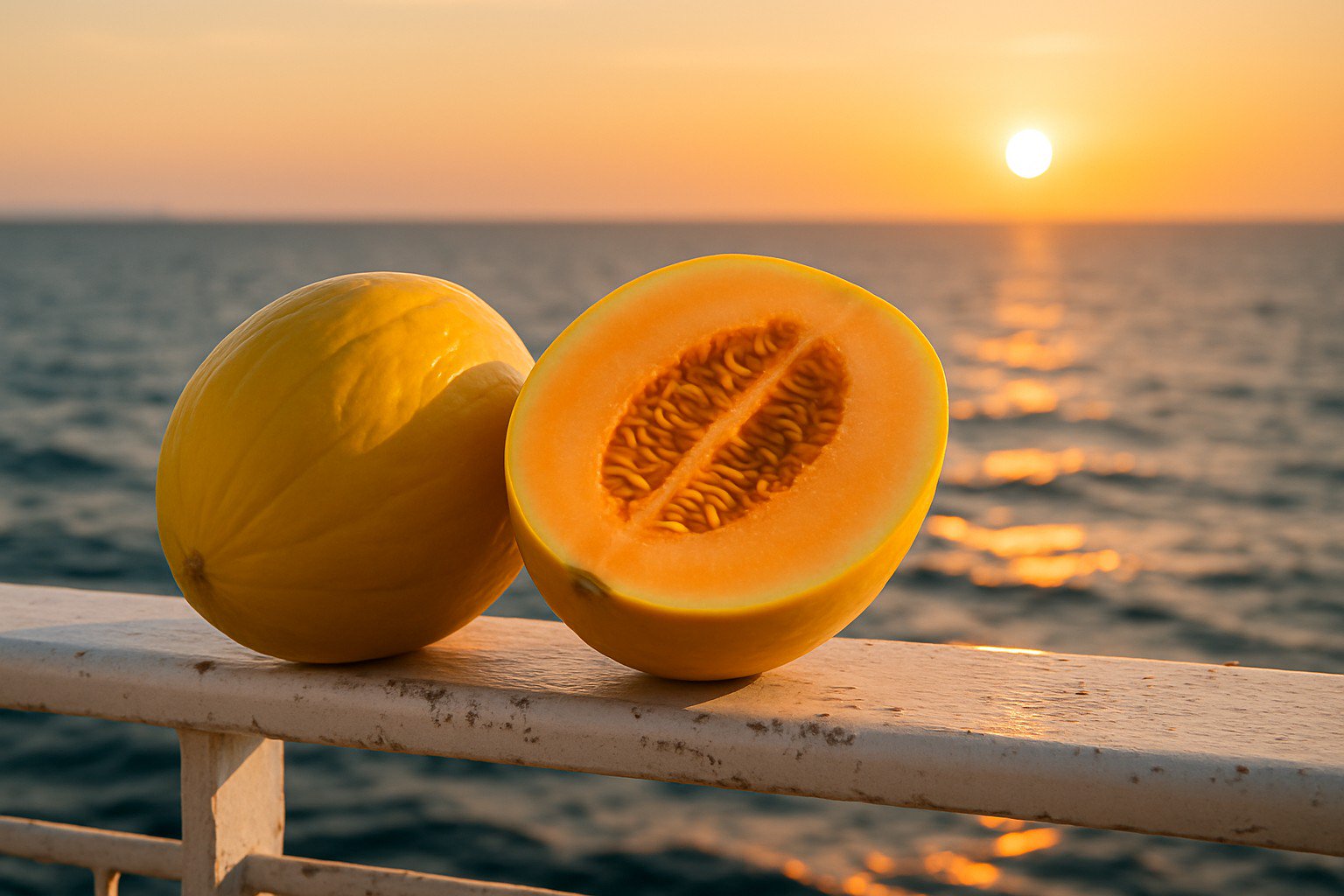🧭 When Spreadsheets Fail—What Ancient Wisdom Guides Us Home?
The scent of dried earth. The cries of vendors cutting through Ksar El-Kébir’s morning haze. That August dawn in 2014, as I loaded my car for the 1680km drive to Avignon, the air vibrated with the same energy that once filled Phoenician ships on our ancestral Loukkos River.
Between crates of sun-ripened tomatoes, a pyramid of melons from Ksar El-Kébir stopped me. Their golden stripes mirrored the geometric perfection of Fassi zellige tiles. Their weight in my hands felt like holding condensed sunlight. On impulse, I bought twenty—my grandmother’s voice whispering: “A traveler without homeland becomes a ghost.”

At Algeciras port, anxiety coiled in my stomach. The Spanish officer circled my car, paused before the golden hoard, and lifted one with work-roughened hands. He tapped it, like a maestro artesano assessing ceramic resonance. Suddenly, his stern face melted into recognition:
"¡Ah, los melones auténticos de Ksar El-Kébir!"
(Ah, the authentic melons from Ksar El-Kébir!)
In that moment, we weren’t officer and traveler. We were Mediterranean kin. This revelation birthed the first principle of what would become my Canary Melon Compass—a framework for finding home through cultural resonance rather than sterile metrics.
Research Perspective: Dr. Olivia Parker, Migration Studies, Stanford University
“Our 2024 research shows that cultural resonance predicts long-term relocation success 68% better than practical factors alone. The Canary Melon Compass principles align with what we term ‘somatic belonging’—the physical feeling of being recognized and understood in a new environment.”
❌ Why Traditional Destination Planning Leaves Us Empty
We nomads obsess over spreadsheets: cost indices, Wi-Fi speeds, visa scores. I worshipped these false idols—until my business collapsed in Arles despite “perfect” logistics. The numbers couldn’t compensate for missing cultural resonance.
This experience exposed conventional metrics’ bankruptcy and reinforced the philosophy I explore in Algorithmic Sardine—the importance of meaningful data over mere quantity.
“Nomad List measures internet bandwidth, not soul-bandwidth.
It quantifies rent, but not the cost of cultural starvation.”
🧭 The 3-Step Canary Melon Compass: A Framework for Soulful Belonging
Step 1: The Sweetness Test—Terroir Over Terrain
What unique cultural flavor nourishes your soul?
The Melon Wisdom: The perfect Canary melon from Ksar El-Kébir has a specific sweetness born from Loukkos River clay and particular sunlight angles. You can’t replicate it elsewhere.
Modern Application:
In Málaga, I found my sweetness in woodsmoke from espetos sardines on Playa La Malagueta—the exact scent from Larache’s fishing nets. Not tourism, but living ritual since Phoenician times.
Your Practice:
- Find where locals gather at dusk naturally
- Notice the dominant aromas and sounds
- Ask: Does this essence call to something deep within me?
Why It Works: Sensory experiences create emotional anchors that practical conveniences can’t replace, embodying the principles of Rooted Nomadism.
Step 2: The Rind Test—Cultural Resilience
Does this place protect its core from globalization’s erosion?
The Melon Wisdom: A good melon has a tough rind that protects the sweet interior during transport. Similarly, resilient cultures maintain their integrity while engaging with the world.
Modern Application:
Like Jbala cork oaks regenerating after stripping, I found Málaga’s resilience in:
- Fishermen teaching sons the exact angle to skewer sardines
- The raw duende in hidden flamenco tablaos, not staged shows
- Dialect preservation despite tourism pressure
Your Practice:
- Seek traditions practiced as daily bread, not performances
- Notice where entry requires respect, not just payment
- Observe intergenerational knowledge transfer
Why It Works: Cultures with strong “rinds” offer stability and authenticity in a homogenizing world.
Step 3: The Recognition Test—Ancestral Echoes
Where does your history vibrate in this landscape?
The Melon Wisdom: The Spanish customs officer recognized my melons because they resonated with his own cultural memory. True belonging occurs when strangers recognize your roots.
Modern Application:
When I first saw Alhambra’s zellige patterns, tears fell. They matched my grandmother’s house in Ksar El-Kébir—proof my Morisco ancestors carried home in muscle memory after the 1492 exile.
Your Practice:
- Notice architectural or natural patterns that feel familiar
- Seek places where your heritage is understood, not exoticized
- Find landscapes that “remember” you before you remember them
Why It Works: These recognitions create instant belonging that transcends time and distance.

Technical Insight: Dr. Samuel Chen, Environmental Psychology, MIT
“Our research shows that ‘pattern recognition’ in new environments activates the brain’s familiarity centers, reducing stress and increasing belonging. The Recognition Test leverages this neurological phenomenon—when we see familiar patterns in new places, our brains interpret them as ‘home.’”
🌍 Málaga Case Study: Applying the Compass in Practice
My choice of Málaga wasn’t random—it passed all three tests of the Canary Melon Compass:
| Test | Málaga Evidence | My Rooted Connection |
|---|---|---|
| Sweetness | Espetos ritual at sunset | Woodsmoke from Larache’s sardine nets |
| Rind | Malagueños’ fierce dialect protection | Jbala tribes preserving traditions |
| Recognition | Alcazaba’s Moorish arches | Grandmother’s courtyard in Ksar El-Kébir |
This isn’t about finding replicas of home. It’s discovering where new landscapes converse with your inner topography—where, as I learned during my pandemic transformation, the unfamiliar becomes deeply familiar.

🗺️ Your Practical Compass for Next Destinations
7-Day Destination Assessment Challenge
Days 1-2: Sweetness Scouting Visit local markets, cafes, and public spaces at different times. Notice which aromas, sounds, and rhythms resonate deeply with you.
Days 3-5: Rind Evaluation Research cultural preservation efforts. Talk to locals about traditions they protect. Notice intergenerational practices.
Days 6-7: Recognition Seeking Document architectural patterns, natural landscapes, or cultural practices that feel strangely familiar despite being new.
🌟 Share your compass findings with #CanaryMelonCompass
🌟 The Deeper Truth About Finding Home
Those twenty melons from Ksar El-Kébir now live in my philosophy like Axarquía’s millennial olive trees. They taught me what no spreadsheet could:
“We find home not by searching maps,
but by recognizing landscapes that remember us
before we remember them.”
The Canary Melon Compass isn’t about finding perfect places—it’s about finding places where imperfection feels like home, where practical needs and soul needs converge in the messy, beautiful reality of daily life.
FAQ: Navigating Your Destination Choices
How can I apply this framework when relocating for work with limited choice?
Isn't this just romanticizing traditional cultures over modern cities?
What's the quickest way to test a potential destination?
Reflective:
What’s one cultural “sweetness” from your homeland that you’d want to find elsewhere?
Active:
- Apply one compass test to your current location
- Document one surprising recognition or resonance
- Share your discovery with #CanaryMelonCompass
“The best destinations aren’t found on maps—they’re recognized in the soul’s geography.”







Comments